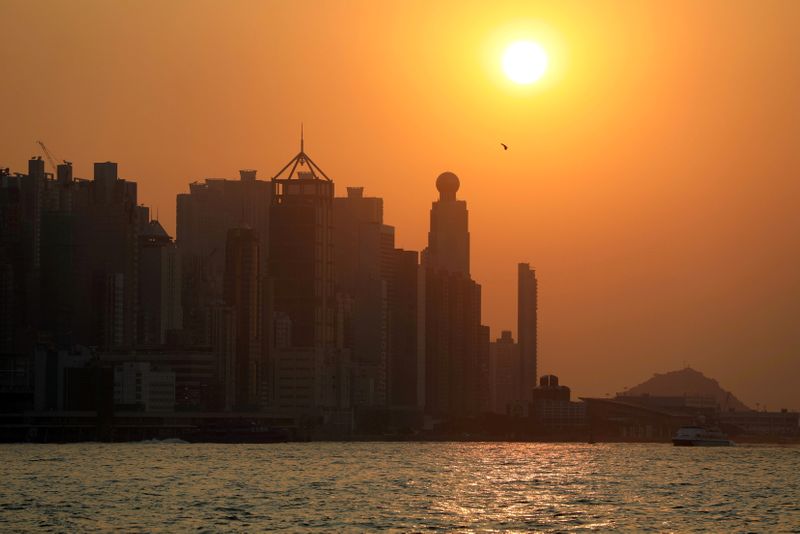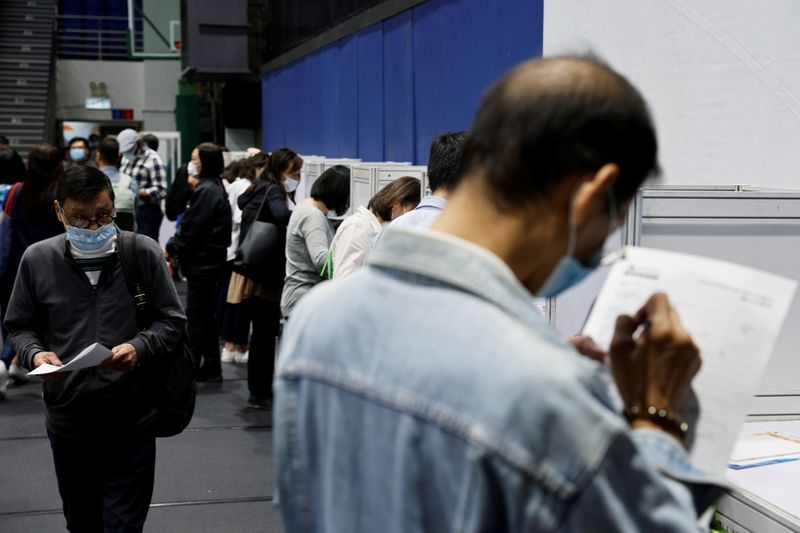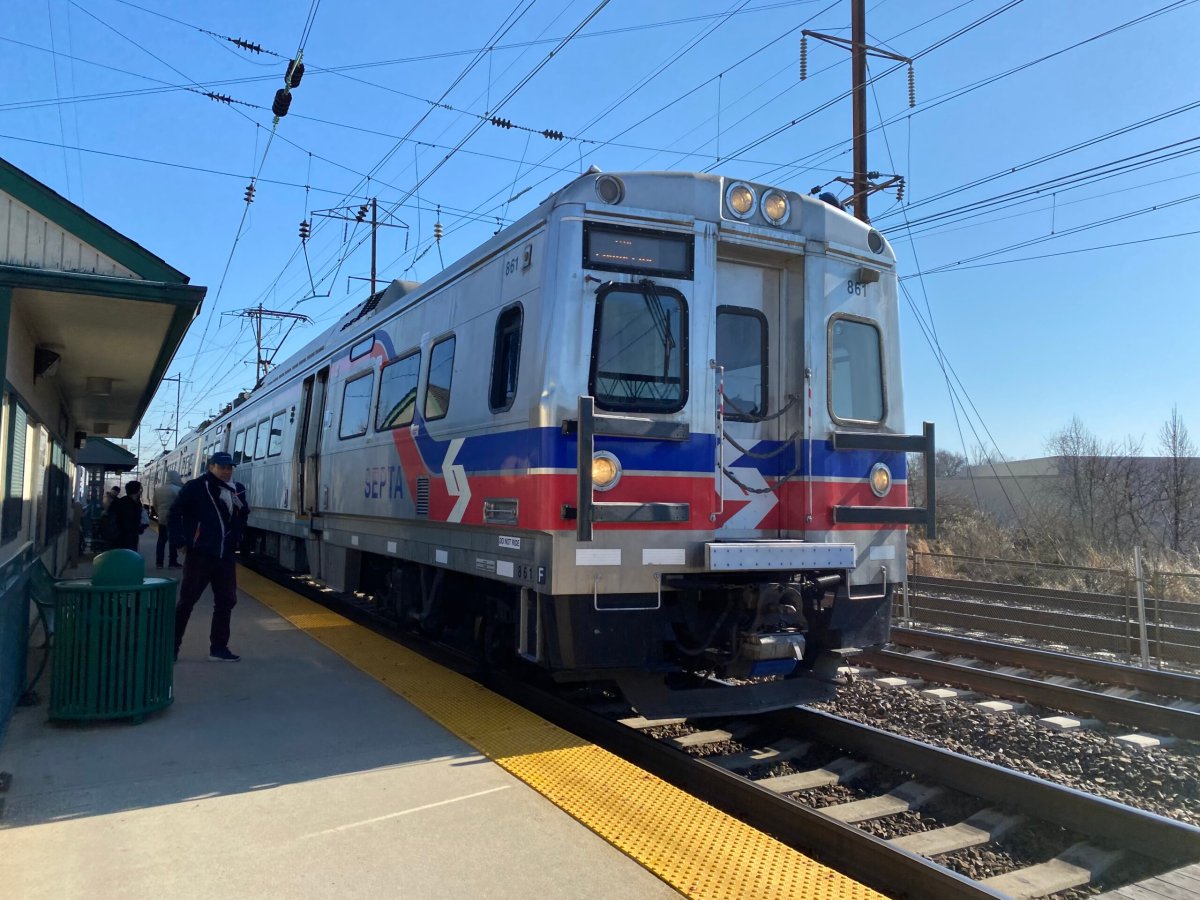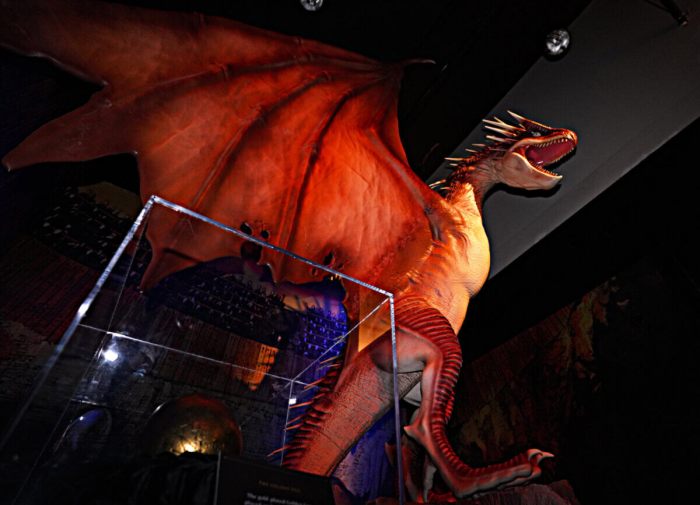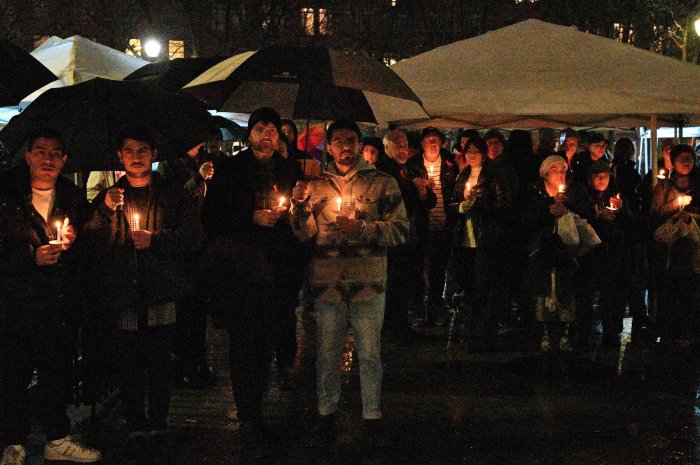HONG KONG (Reuters) – Hong Kong’s long recession showed signs of easing in the third quarter, with a gradual improvement in domestic and external demand from an improving Chinese economy, an easing of the COVID-19 outbreak and stronger financial market activity.
The economy shrank 3.4% in July-September from a year earlier, its fifth straight quarterly contraction, government advance estimates showed on Friday. That compared with a year-on-year contraction of 9.0% in April-June.
Activity picked up markedly from a slump early in the year as anti-virus measures were gradually relaxed and people returned to offices and stores.
“Looking ahead, the continued solid recovery of the mainland (Chinese) economy should render support to Hong Kong’s exports in the coming few months,” a government spokesman said in a statement.
The government said global demand and trade flows would further improve if the recovery of major advanced economies continues, and economic activities should keep recovering this year if local COVID-19 infections stabilise.
“Now Hong Kong’s third wave of the COVID-19 outbreak is behind them, we expect a sizeable revival in the economy in Q4, barring another severe outbreak,” said Tommy Wu, lead economist at Oxford Economics, said in a research note, forecasting the city’s GDP growth to recover to around 5% in 2021.
On a seasonally adjusted quarter-on-quarter comparison basis, gross domestic product (GDP) increased 3.0% from the second quarter, compared with a 0.1% slide in the previous three months.
Economic conditions had deteriorated with a third local wave of infections from the pandemic, but the pressure showed signs of stabilising as the virus situation abated in September.
“I hope that the immigration policies can be relaxed by the first quarter of next year, then the economy can really begin to recover,” said Samuel Tse, an economist at DBS Bank.
The global financial hub’s economy had already been hit by often violent anti-government protests late last year and the U.S.-China trade war.
STRONG BOUNCE
Advance readings showed consumption and investment remaining weak in the third quarter, though economic activity likely drew some support from a strong bounce in China’s economy and from the Hong Kong government’s stimulus measures.
Hong Kong’s unemployment rate rose to 6.4% in July-September, the highest in around 16 years.
The city’s tourist arrivals in September plunged 99.7% from a year earlier to a provisional 9,132 visitors, the tourism board said, largely due to COVID curbs on visitors.
“COVID-19 will remain a major downside risk to the global and local economy until effective vaccines are widely available,” the government spokesman said. “The tourism industry is unlikely to see a swift rebound with widespread travel restrictions in place,”
Longer term, questions are being raised about Hong Kong’s role as a finance centre, after Beijing imposed a sweeping security law on the city on July 1, heralding a more authoritarian era for China’s freest city.
The law, which critics say is curbing the freedoms that helped Hong Kong prosper, prompted Washington to revoke its special economic status which including reduced tariffs compared with the rest of China.
Hong Kong and Chinese authorities justify the legislation as vital to restore stability and prosperity.
“The evolving China-US relations, heightened geopolitical tensions, and the possibility of a disorderly Brexit also add to uncertainties,” the spokesman added.
(Reporting by Twinnie Siu and Donny Kwok; Editing by James Pomfret and David Holmes and Kirsten Donovan)

